As usual, we had hit the road without much of a plan.
People we had spoken to had suggested several great places near to Loreto which sounded like fantastic next destinations. However, hindered by our near complete lack of maps, Agua Verde was simply the place on that list that we accidentally stumbled upon next.
We had been told that it was a pretty amazing spot. As we wound through the scenic countryside just north of Agua Verde, we took a mental note of a few back up camp spots. Things were looking good though, we didn’t genuinely believe we would end up visiting them.

Until we actually arrived in Agua Verde.
Desolate, grey and abandoned, it didn’t really match the enthusiastic descriptions we’d been given. Perhaps it was more spectacular if you arrived by boat and camped on the sand bar. Regardless, we decided it was still an OK place to spend the night. After asking around town we located the best spot to set up camp.
Shortly thereafter, a very strange man came and stood beside our tent. We weren’t sure if he wanted money or conversation. He appeared to be unresponsive to attempts by us to offer either. He mumbled incoherent responses to any questions we asked in English or Spanish and just sat and stared.
By this point the camp spots just down the road were looking pretty good.
Ben initially wanted to wait out the crazy man. Emma was not so keen. After thirty minutes of being stared down by a person of questionable sanity, Ben wavered and we moved camp back down the road.
We had spotted a cute little beach on the way in, just over the hill from Agua Verde. What we couldn’t see was a clear road to the beach. As the sun sunk low on the horizon, we drove with purpose. With Emma matching up the visible bits of road out the passenger window and Ben keeping his eyes out for a turn-off. We soon figured out where the most likely candidate was for a spot to leave the main road to get to the beach.
This ‘road’ didn’t look like it was very well travelled at all, but in the fading light, we managed to follow it right to the spot we had seen as we drove the main road above.

We had the whole beach to ourselves.
Just in time for a couple of sunset beers on the beach. Perfect.
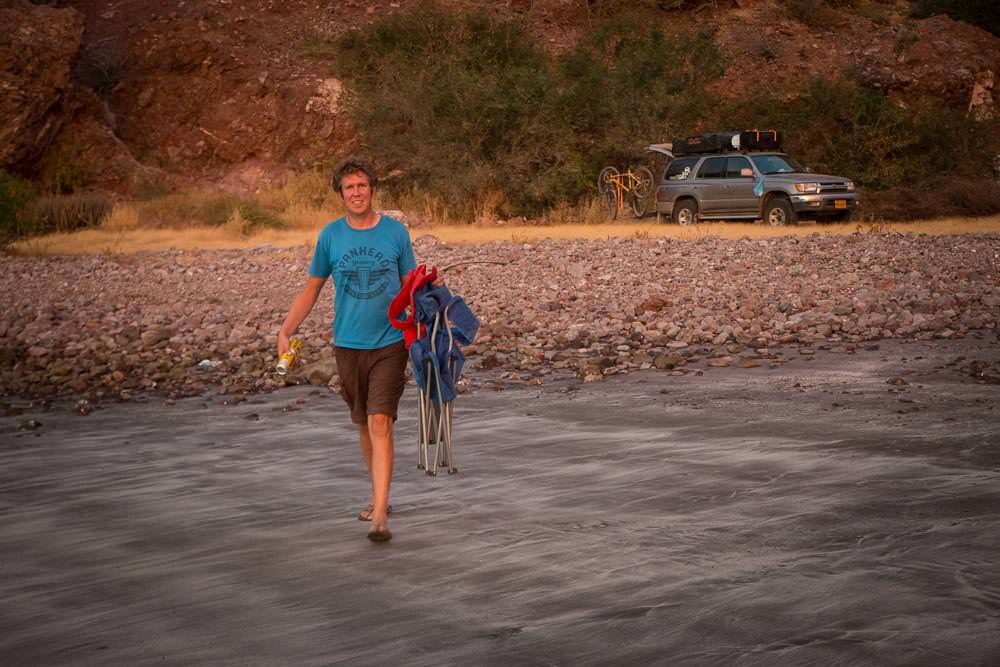
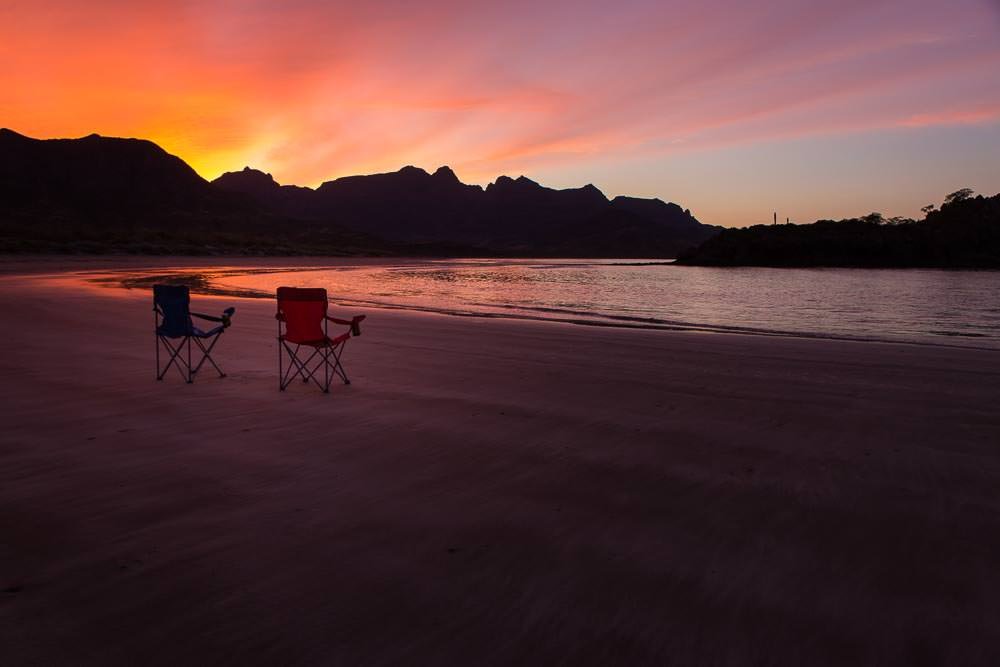
Not only were the sunsets spectacular, but it was the perfect spot for a bit more stargazing:
The next morning we awoke to a peaceful beach, with shallow warm water—and just enough sting rays to make Emma wary about going swimming barefoot.
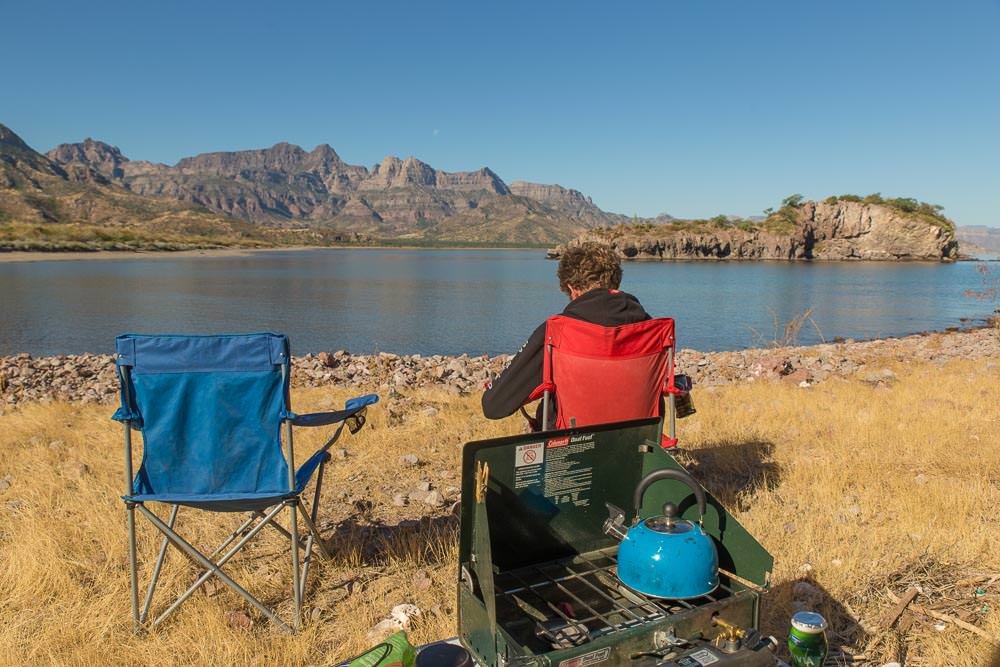
The rocky coast and a small offshore island provided the perfect opportunity for some snorkelling. Schools of tropical fish darted every which way as we swam about. (No photos, the GoPro is still broken)

We had found our own little corner of paradise and none of the cars driving past on the ‘main’ road above seemed to care. We hoped we weren’t camping somewhere we shouldn’t and didn’t fancy be kicked out of our little camp spot by an angry landowner, but there didn’t seem to be anyone nearby to care.

Then we heard the rumbling of an engine, getting closer.
Dammit. No one would come down here unless they meant to.
We imagined an angry land owner sending us away and muttered about how nice it would have been to stay there for a few more days.
Then around the corner, who should appear, but Peter and Dace from izaicinajums.com.
Fairly confident that they weren’t going to send us away, we realised we could relax here a little longer.
Turns out Agua Verde hadn’t been to their taste either. Suspecting we were in the area they had been on the lookout. Nonetheless, our camp was sufficiently hard to spot from the road that they had employed the use of binoculars to see us against the hillside. Finding the road to get to us had proven to be an equally complex issue.
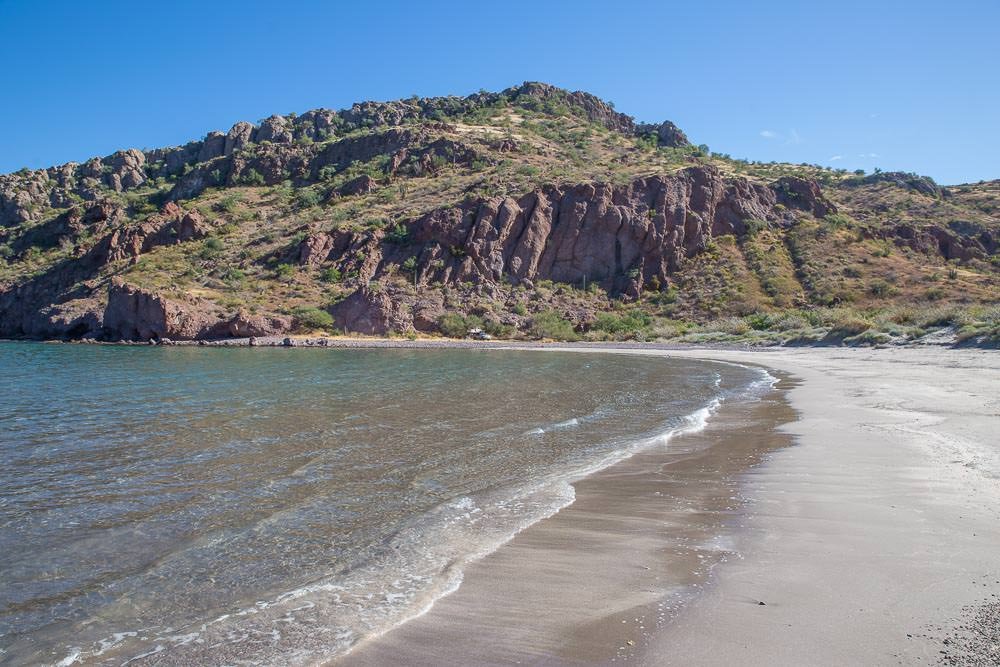
Dace headed around the rocks for a spot of fishing and we relaxed in the shade of the tent. Everyone settled in for a day of doing almost nothing. Swimming, relaxing, snorkelling, drawing, reading and a quick tequila break on the beach for sunset. It was shaping up to be a rough few days on the beach, how were we going to cope?
Dace’s fishing attempts were successful and we all tucked in to a shared dinner of fresh fish and whatever we could scrape from our ‘cupboards’ (plastic containers of food).
The following day followed much the same pattern as the first, a relaxing day on the beach, more sun, more snorkelling and some insect spotting.
There were hundreds of fluffy little butterflies:
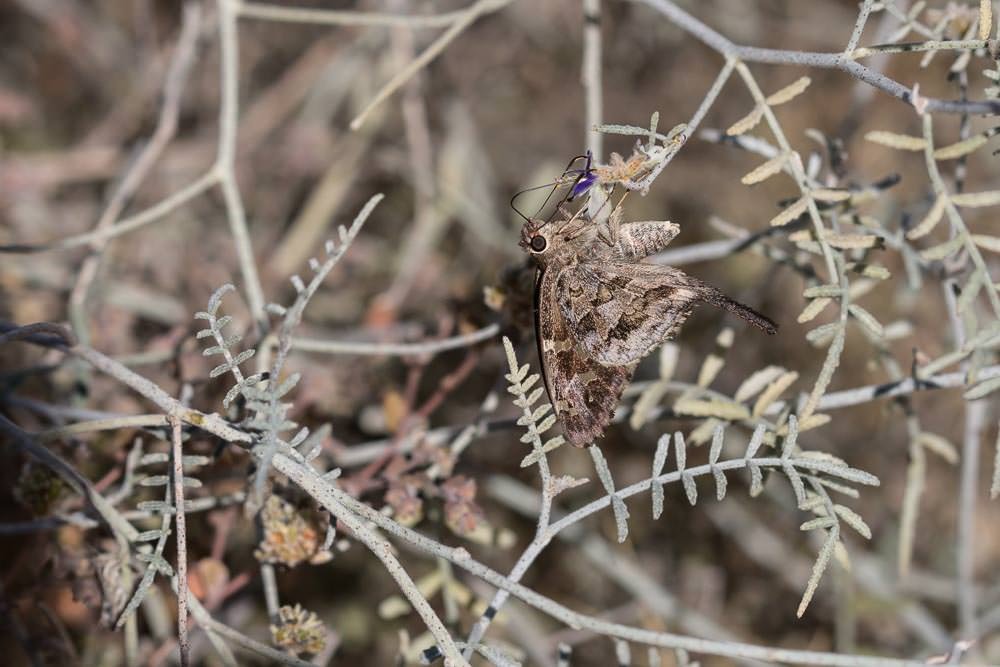
And these interesting looking little chaps buzzing about like low flying aircraft.
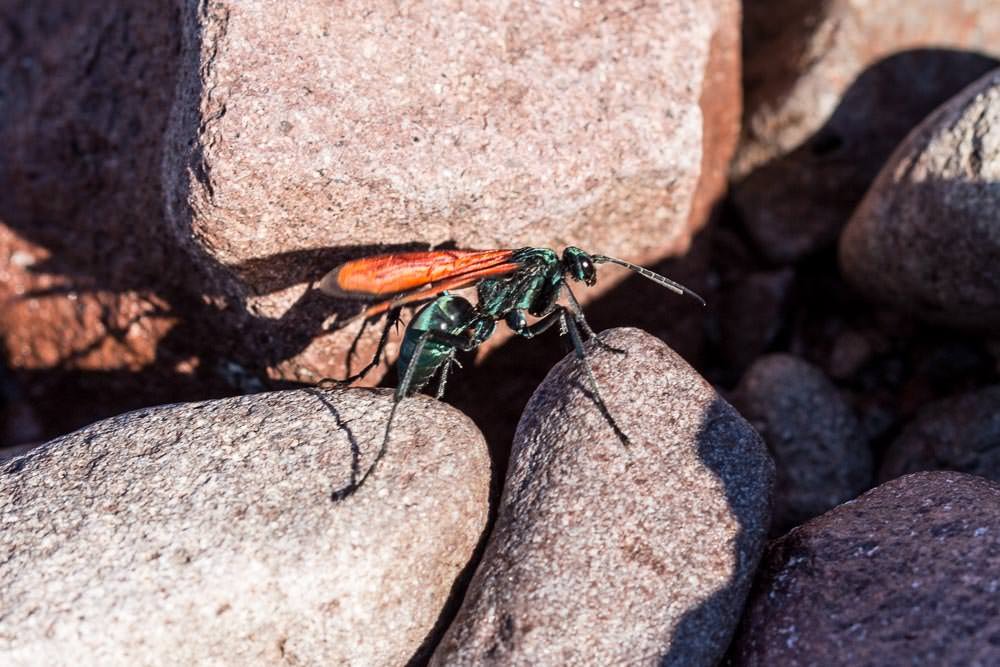
Wait.
Is that a tarantula hawk? *
There are an awful lot of them.
A number of tarantula hawks can only mean one thing: A number of tarantulas.
Sure enough, that very evening, this guy showed up:

Probably not the biggest spider in the world, but big enough. Certainly the biggest one we’ve seen.
Here he is with Peter’s hand for scale, neither Ben nor Dace were particularly keen to get their hands in the photo for this one. Me? I was busy taking the photo obviously…

Despite the ever-present threat of giant arachnids and terrifying death wasps, we still weren’t keen to leave our little bay.
Peter and Dace packed up and continued south the next day, but we decided we had enough water to stretch one more night.
Luckily the only many-legged critters we encountered were the hermit crabs wandering the shore at low tide:
That night as we tucked ourselves into bed, we heard the rumbling of another car. Not sure who would be driving down the ‘almost road’ through the trees so late at night, we listened carefully as they arrived. It soon became apparent that it was just local fishermen sliding their boat into the ocean. They clearly didn’t mind that we were there, so we settled in for another peaceful night’s sleep.
When we awoke in the morning, we saw that the fishermen had blocked the exit road with their car. In no rush to leave, we boiled the last of our water to make a morning cup of coffee and watched the sunrise light up the hills across the bay.
It wasn’t long before the fishermen returned, as we expected a quick wave and a ‘Buenos dias’ was all that was needed, no one was grumpy that we were camping at their fishing spot. In fact, we weren’t sure that they were even meant to be here, the whole operation seemed a little covert. We watched with interest as they wrestled their boat back on to their pickup truck.
Then one of the fishermen wandered over with several lobster tails, expecting him to offer them for sale, we were surprised when he offered them as a gift. We’ll call it an offering of ‘hush lobster’ if they were indeed not meant to be fishing there.
But it was some of the tastiest ‘hush lobster’ we’ve ever eaten, what a way to finish four peaceful days on an empty beach.
Lobster for breakfast, followed by fresh lobster ceviche for lunch.
Wishing we had a larger water bottle (20L can only go so far) we packed up the truck, found our way back to the main road and rolled slowly back towards civilization.
We never did find out what the name of the little bay was. We should probably just look on a map, but whenever anyone asks us, we just tell them it was ‘Elephant Bay’.











* Tarantula hawks are quite possibly the most terrifying creature in the world. According to Wikipedia (which only lies occasionally)—The female tarantula hawk uses her sting to paralyse a tarantula. This tarantula then becomes a living incubator for the baby tarantula hawk. This horrifying alien death larvae works its way around eating the internal organs of the tarantula, saving the vital organs for last. Thus, the poor paralysed tarantula is alive for as long as possible during this ordeal. Only Mother Nature or the director of ‘Saw‘ could come up with something that unpleasant.
As an added bonus, according to Justin O. Schmidt (a crazy man who went around categorizing the pain levels associated with the stings of various critters) the tarantula hawk ranks second only to the bullet ant. He is quoted on Wikipedia describing the result of a tarantula hawk sting as “…immediate, excruciating pain that simply shuts down one’s ability to do anything, except, perhaps, scream. Mental discipline simply does not work in these situations.”
Also. Just incase you haven’t realised, this means that for every tarantula hawk, there was at some point at least one tarantula.




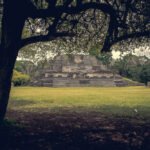
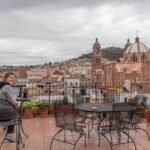
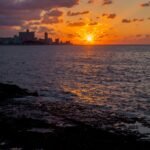



2 Comments
I was thinking it sure looked like a beautiful part of the word till you got to the tarantulas. Keeping track of your amazing adventure here with your amusing posts.
Did you do the star trails with one exposure, or stack a whole heap?
Nigel
Haha! Yeah, we guess nowhere is perfect… Thanks 🙂 The star trails is a stack of separate exposures (actually a failed time lapse…)